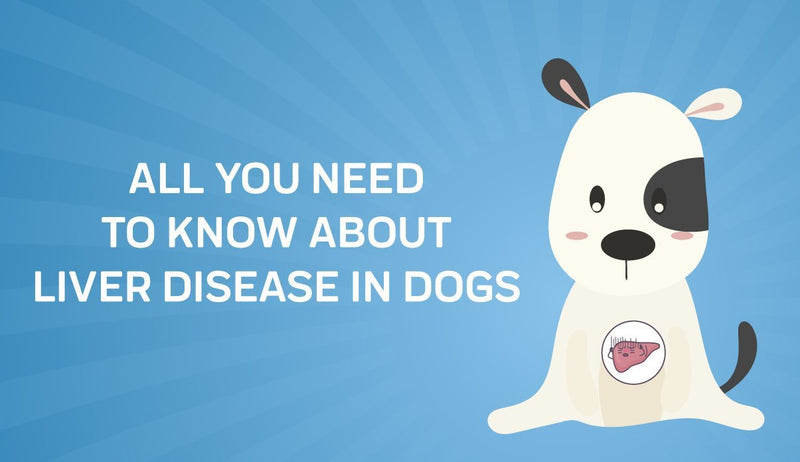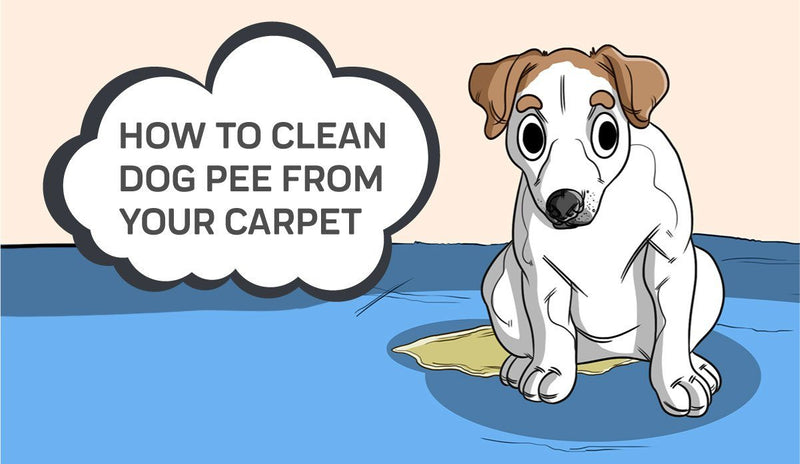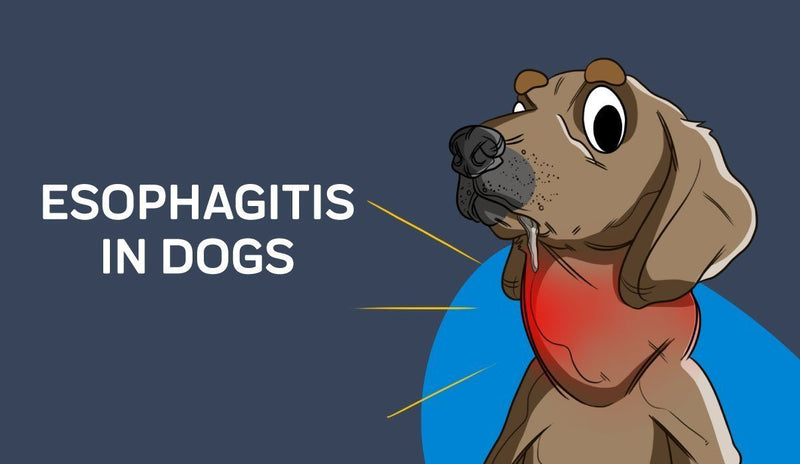- What Is Canine UTI?
- What Causes Urinary Tract Infections In Dogs?
- What's The Difference Between A Bladder Infection And A UTI In Dogs?
- The Two Types Of UTIs In Dogs
- Symptoms Of A Urinary Tract Infection In Dogs
- Spotting UTIs In Puppies
- Causes Of UTIs In Puppies
- Difference Between a UTI and a Bathroom Mistake
- Kidney And Bladder Stones In Dogs
- What To Do If You Think Your Dog Has A UTI
- Diagnosis Of A Urinary Tract Infection In Dogs
- Treatment For UTIs In Dogs
- Home Remedies For UTIs In Dogs
- What Happens If A Canine UTI Goes Untreated?
- Preventing UTIs In Dogs
- Conclusion: Prognosis For UTIs In Dogs

At some point or another, you've probably dealt with a urinary tract infection yourself. They're painful, uncomfortable, and can sometimes be difficult to get rid of. Fortunately, it's fairly simple to obtain treatment from your doctor and local pharmacy.
Just like we can get urinary tract infections, are dogs can be susceptible to them, too. However, they aren't able to easily let you know that they have an issue, which can make the problem a little more complicated for your furry friend. They're a pretty common health concern with dogs and cats alike, along with bladder and kidney issues. In this article, we'll cover everything you need to know about these infections in dogs, how to spot them, treat them, and prevent them, as well as other common urinary issues that occur in dogs.
What Is Canine UTI?
A urinary tract infection (UTI), also known as bacterial cystitis, happens when there is a build-up of bacteria in the opening of your pet's urethra. The most common type of bacterial build-up is feces, debris, and E. coli. Once these bacteria make their way into your dog's urinary system through their urethra, they multiply quickly, creating a UTI.
A UTI usually occurs while your pet's immune system is compromised in some way. Puppies, older dogs, dogs that have recently gone through surgery, and dogs fighting off another sickness are all likely candidates for UTIs. Female dogs are more likely to develop UTIs as well. UTIs are often paired with stone formation, prostate disease, and tumors.
What Causes Urinary Tract Infections In Dogs?
UTIs are usually the result of a bacterial infection, though there are certain diseases and health conditions that can cause a dog to contract a UTI. E. coli is the most common bacteria behind UTIs, followed closely by Staphylococcus, and Proteus spp. Together, these three bacteria account for more than half of all urinary tract infections in dogs. Streptococcus, Klebsiella, Enterobacter, Pseudomonas, and Corynebacterium spp. bacteria are also common causes of infections in dogs.
Aside from bacteria, there are some health conditions that can lead to a UTI. Bladder disease, bladder cancer, bladder inflammation/infection, kidney disease, kidney stones, diabetes, prostate disease, and cancer could all be the cause of your dog's UTI. However, these are much rarer causes of UTIs in dogs. Your dog could also contract a UTI from excessive stress, drinking, or trauma.
A dog of any breed, age, or gender can contract a urinary tract infection, though there are some that are more likely than others. Female dogs are significantly more likely to develop a UTI than their male counterparts since they have a shorter urethra. Additionally, older dogs are at a higher risk for infections due to their weaker immune systems. Shih Tzu, Bichon Frise, and Yorkshire terriers are all prone to urinary issues in general, which include UTIs.
What's The Difference Between A Bladder Infection And A UTI In Dogs?
A common misconception surrounding UTIs is the idea that they are the same thing as a bladder infection. While similar, there are some key differences between the two that are important for understanding your pet's health.
The primary difference between the two is location. An infection takes place in your dog's bladder, while a UTI generally refers to an infection that hasn't made its way to your pet's bladder yet. So, if your dog has a bladder infection, then it could be a UTI that worked its way into their bladder; if it has a UTI, then it has an infection in its urethra that may or may not make its way into their bladder.
These infections can occur if a UTI spreads to the bladder. This leads to inflammation in their bladder, also known as cystitis. These infections can also occur without the presence of any bacteria, in which case it would not be a UTI. While this may seem a little confusing, it's mostly going to be up to your vet to determine the difference. On your end, the UTI symptoms for each will largely be the same, but the treatment will vary between the two.
The Two Types Of UTIs In Dogs
There are two types of urinary tract infections in dogs, complicated and uncomplicated. The difference between the two is frequency and severity.
Complicated UTIs
Complicated UTIs are recurrent urinary tract infections that require more intensive treatment to get rid of. They last longer and will require more vet intervention to help your dog recover. Complicated UTIs are usually an indicator of an underlying problem that needs to be treated. If your dog gets UTIs on a frequent basis or isn't able to get rid of a UTI within two weeks, speak with your vet about finding the source of the issue.
Uncomplicated UTIs
An uncomplicated UTI is just the opposite. They are usually the first and only time that your dog has ever gotten a UTI can be treated within 10 days, and don't pose any serious health threats to your pet. So long as your dog doesn't have a history of UTIs, it's safe to assume that it's an uncomplicated UTI. Just be sure to keep an eye on them and make sure that it doesn't develop into a complicated UTI.
Symptoms Of A Urinary Tract Infection In Dogs
Like any health issue in dogs, the most obvious sign that you will notice is a change in behavior. Dogs, and most animals in general, are very routine and predictable. So long as you interact with them on a regular basis, you will likely notice something is off before you recognize any other symptoms.
Dog UTI symptoms vary by the seriousness of their infection, but there is one universal indicator that your dog likely has a UTI: accidental urination. While it will likely seem like an accident the first time or two, a housebroken dog that has increased frequency of peeing around the house likely has a UTI. UTIs also cause pain and discomfort, so if you notice that they are urinating around the house and seem fatigued, pained, or sick, then a UTI is probably to blame.
Another common sign, although a little less noticeable, is blood in your dog's urine. This is usually pretty difficult to spot until your dog begins peeing in the house. Blood in your dog's urine will generally look like a transparent pink. Your pet may also have a harder time using the bathroom, leading to longer trips outside before they have used the restroom.
Common Urinary Tract Symptoms Include:
- Housebroken dog peeing inside
- Bloody or cloudy urine
- Takes your dog longer to use the restroom
- Fever
- Abdominal pain
- Painful urination (dog cries out while peeing)
- Frequent urination in small amounts
- Strong smelling urine
- Frequent licking of genitals
- Change in appetite
- Lethargy
- Weight loss
- Back pain
- Increased thirst
- Difficulty urinating
Spotting UTIs In Puppies
Being able to determine if a puppy has a UTI or not is much more difficult than it is when your dog is fully grown. Not only are they more prone to urinating inside, but they pee in smaller amounts, which can make it harder to find. The same goes for small breed dogs, which are known for being more difficult to house train than larger breeds. Because of this, it is easy for even the most attentive owners to brush off a UTI as typical bathroom behavior.
Causes Of UTIs In Puppies
Aside from the previously mentioned causes of UTIs, there are a few additional disadvantages that puppies have that make them more likely to develop UTIs. Puppies, like older dogs, are more susceptible to developing UTIs because their immune systems aren't as developed as adult dogs. This makes it harder for them to fight off the spread of bacteria.
Puppies also have a habit of not drinking as much water as they should. This leads to urine and toxins sitting in their bladder for a longer period of time than normal. This promotes the growth of bacteria, leading to UTIs. Puppies that are confined to a small space may also hold their urine in longer because they are unwilling to pee in the same space that they sleep in. This urine retention can cause UTIs as well.
Puppies are also lower to the ground than adult dogs and may touch the ground while using the restroom. This can introduce dirt and bacteria to their urethra and is a common reason that puppies develop UTIs. Puppies that are kept on a vegetarian diet could develop alkaline urine, increasing their risk of contracting a urinary tract infection.
Difference Between a UTI and a Bathroom Mistake
The symptoms of UTIs in puppies is the same as in dogs, though they can be more difficult to spot. In particular, being able to tell the difference between a potty accident caused by lack of potty training and one caused by a UTI is pretty difficult. If you suspect that your puppy has a UTI, pay close attention to their behavior and bathroom habits.
Puppies typically use the restroom after eating, drinking, playing, waking up, and shortly before they fall asleep. If you notice that they are peeing frequently outside of these occasions, a UTI could be to blame. A puppy's urine is usually clear and odorless as well (assuming they are getting enough to drink), so watch for cloudy, foul-smelling urine.
Alongside this, watch for other concurrent symptoms of a UTI infection. If your puppy is peeing frequently but otherwise exhibits no symptoms of a UTI, then they most likely are just lacking proper house training. However, if you notice that they are licking their genitals more than normal, seem to be in pain, and appear sick, then they could have a urinary tract infection. With all dogs, but especially puppies, it's better to be safe than sorry, so if you're unsure, taking them to a vet for an evaluation never hurts.
Kidney And Bladder Stones In Dogs
Unfortunately, kidney and bladder stones typically go hand in hand with urinary tract infections. UTIs can be caused by or cause the development of bladder stones, and the visible symptoms are largely the same; abdominal pain, accidental urination, blood in urine, etc.
Struvite bladder stones are mineral deposits that build up in their bladder, creating rock-like formations. They are caused by urine that is excessively concentrated or alkaline. The high concentration of minerals in this type of urine precipitates and stay in their bladder, eventually forming together to create struvite stones. Despite the fact that these stones are extremely tiny, they can cause a great deal of abdominal pain for your pet and are very painful to pass. Any dog can develop a bladder stone, though some breeds have a higher chance of getting them than others. Dalmatians, bulldogs, Shih Tzus, Yorkshire terriers, and dachshunds are all more likely to suffer from bladder stones than other dogs.
It's important to be aware that bladder stones and UTIs look very similar on the surface because you could end up misdiagnosing the issue. If you believe that your dog has a UTI, make sure to get a professional diagnosis from a trusted vet. They will check to make sure that the issue is indeed an infection and not a kidney or bladder stone.
What To Do If You Think Your Dog Has A UTI
If you believe your dog has a urinary tract infection or any other kind of damaging health condition, they should be taken to a vet immediately. It can be tempting to try and treat the issue yourself, but oftentimes this makes matters worse than they were before. Aside from the fact that you could treat the issue improperly, you might also be incorrect about whether or not your pet has a UTI. As previously mentioned, the symptoms for UTIs are very similar to bladder and kidney stones, making it difficult even for vets to diagnose the issue. UTI can also pose serious health risks if left untreated as well. It's always in your pet's best interest to get professional help whenever you suspect that something is wrong with them.
Diagnosis Of A Urinary Tract Infection In Dogs
Make sure to keep a record of all of your dog's symptoms before going to the vet. This will help speed up the diagnosis process and give them more information to work off. Once your vet has reviewed your dog's medical history and listened to their symptoms, they will more than likely conduct a urinalysis, complete blood count, physical examination, and biochemistry profile. This helps them create a picture of your dog's current health status and look for any serious issues like pus or blood in your pet's urine.
Once this is done, they will usually take a urine sample from your dog's bladder using a syringe. This urine is then cultured so that the invasive bacteria will grow under their supervision, allowing for sensitivity testing. Once your vet has identified the bacteria they will be able to prescribe proper antibiotics for fighting off the infection. Alongside all of this, your vet should do checks to ensure that the issue is indeed a UTI and that there are no bladder or kidney stones present.
Treatment For UTIs In Dogs
Because UTIs are a relatively common issue in dogs, treatment is pretty straightforward. Assuming the UTI is caused by the presence of bacteria (which it is the vast majority of the time) your vet will identify the bacteria via a bladder sample and prescribe an antibiotic for targeting that particular bacteria. It is important that the infection is treated as quickly as possible. Even though they aren't usually serious on their own, they can spread to other areas of your dog's system and become more critical issues that are harder to treat.
However, UTIs can be caused by other factors, such as more serious health conditions like kidney disease, bladder disease, bladder and kidney stones, prostate disease, and bladder cancer. If one of these is the cause of your dog's UTI, then you will need to treat the more serious issue first to rid your pet of its UTI.
Home Remedies For UTIs In Dogs
While it's recommended that you follow a vet's orders for treating your dog's urinary tract infection, and critically important that you see a vet for a diagnosis, there are a few treatment methods you can try at home for resolving your pet's infection. These methods are good for pet owners that want to take a holistic, natural approach as treatment options for their dog's UTI. Most of these methods are also good for preventing UTIs and treating bladder stones.
Apple Cider Vinegar
One of the most useful materials you can keep around the house, apple cider vinegar is a natural antiseptic and antibacterial agent. Adding one to two tablespoons of apple cider vinegar to your dog's water twice a day for ten days can alleviate symptoms and reduce pain caused by a UTI.
Increase Your Dog's Daily Fluids
One of the best ways to treat bladder and kidney issues in humans and dogs is to increase daily fluid intake. Alongside hydration, water flushes your system of toxins and waste. The more fluid your dog drinks, the quicker they will expel bacteria and toxins from their body, speeding up the UTI recovery process. Not only that, but it is helpful in preventing bladder stones as well. Just make sure that your pet's food bowl is clean and changed out quickly. If it gets excessively dirty, bacteria could grow in the water, making the problem worse.
Administer Vitamin C Tablets
Vitamin C is an essential vitamin for humans and dogs alike. It boosts your dog's immune system and helps them fight infections. They're also great for making your dog's urine more acidic, which is better for killing bacteria and removing toxins from their system. To give your dog Vitamin C tablets you can add it into their food or crush it up and mix it with peanut butter.
Fresh Berries
Berries like blueberries and cranberries are great for promoting bladder and kidney health. They can lower the pH levels of urine, which reduces the spread of bacteria throughout their urinary tract. Most dogs shouldn't have a problem being given these berries as an occasional snack, but if they seem reluctant, you can try giving them natural cranberry or blueberry juice. Just be sure that the juice is completely natural and fresh; some of these juices will contain added sugars that will dehydrate your dog, making their UTI worse.
Citrus Juice
Citrus juices are great for boosting the health of your dog's urinary system as well! They are packed to the brim with essential vitamins and nutrients and can reduce pH levels in your pet's urine. They're also a natural antioxidant, antibacterial, and anti-inflammatory agents. Some of the most popular citrus juices that you can give to your canine companion include lime juice, orange juice, lemon juice, and cranberry juice.
What Happens If A Canine UTI Goes Untreated?
Despite being painful and uncomfortable for your dog, urinary tract infections usually are very serious on their own. However, if untreated, they can spread throughout your dog's system, causing a whole host of issues ranging from somewhat serious to life-threatening.
The first place a UTI is likely to spread to is your dog's kidneys. Here they can cause struvite stones to develop, which will become a much more difficult health concern to treat than UTI. If these stones go undiagnosed and untreated, they can create obstructions in your dog's lower urinary tract, causing kidney failure and bladder ruptures. Not only that, but they can also cause complex infections to occur in your dog's kidneys, which are vital organs. While less common, UTIs have the potential to travel all the way up to your dog's heart. If you suspect that your dog has a UTI, don't let it go untreated.
Preventing UTIs In Dogs
Even though treatment for UTIs is relatively simple, it's still best to take measures to prevent it from happening in the first place. While none of these precautions work all of the time, they will help prevent your dog from developing a UTI or other urinary tract conditions.
The best thing you can do for your dog when it comes to their urinary health is to make sure that they are always getting enough to drink. Drinking clean, fresh water on a regular basis will keep toxins and waste moving through their body at a healthy rate. Frequent urinating also helps flush out their urethra, removing any bacteria or dirt build-up. One of the most common causes of infections in dogs is holding their urine for too long, so make sure that they get frequent bathroom breaks as well. It also helps to keep your dog well-groomed and bathed. While dogs generally prefer to get dirty and stay that way, regular cleaning will prevent bacteria from making a home out of your pet.
Conclusion: Prognosis For UTIs In Dogs
Fortunately, the prognosis for dogs with a UTI is great! So long as they're caused by a bacterial infection, which they are the vast majority of the time, your dog shouldn't have any trouble recovering with proper treatment. With a speedy diagnosis, proper treatment, and preventive measures, your pet should be back to its old selves in no time.
The prognosis for an ignored UTI will get worse as time goes on, though. It can lead to more serious and complex health issues, so always be sure to seek a vet's assistance as soon as you suspect that your dog has a urinary tract infection.
There is also a rare occasion that your dog's UTI is a result of a more serious health condition. While this is scary to think about, it's one of the reasons why seeking professional help early on is so important. Even if you have good reason to believe that the problem is nothing more than a UTI, getting a professional opinion is essential in making sure that your pet's infection isn't a symptom of a life-threatening condition.
Sources:
Bacterial Urinary Tract Infections
Antimicrobial Use Guidelines for Treatment of Urinary Tract Disease in Dogs and Cats
Lower Urinary Tract Problems and Infections in Dogs
Urinary Tract (Bladder) Infection in Dogs and Cats
















